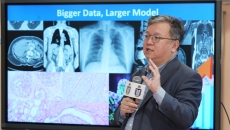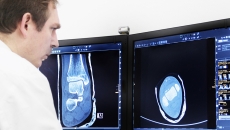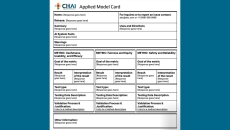Decision Support
Hong Kong University of Science and Technology has recently developed four large language models, including models for cancer detection and an AI chatbot for physicians.
Also, Australia's aged care research centre has received additional funding to deploy AI.
Chris Harle, a longtime clinical informatics leader who has worked as a biomedical researcher at Regenstrief and a health policy professor at Indiana University's school of public health, will helm the IT and data innovations at Regenstrief Data Services.
This is part of an ongoing project to replace paper-based chemotherapy prescribing across South Australia.
Its single cloud-based database integrates emergency department, ambulatory, financial, revenue cycle and enterprise resource planning data, the company said.
AI & ML Intelligence
He has boasted about the accuracy of subscription-based Grok artificial intelligence for analyzing medical images, but physicians and researchers say the model's ability to diagnose medical conditions is limited, and privacy experts have concerns.
It is now the second APAC hospital presently validated at this stage.
Also, Bangkok Dusit Medical Services has partnered with Samsung Medison for medical imaging and AI.
From EHR optimization to AI-enabled CDS, big advancements are happening with biomedical informatics. Chris Harle, researcher at Regenstrief Institute and professor at Indiana University, discusses data science, provider experience, patient safety and more.
The coalition's new draft certification frameworks, which could be finalized in six months after more stakeholder feedback, offer a way forward for artificial intelligence assurance labs and basic model transparency.







